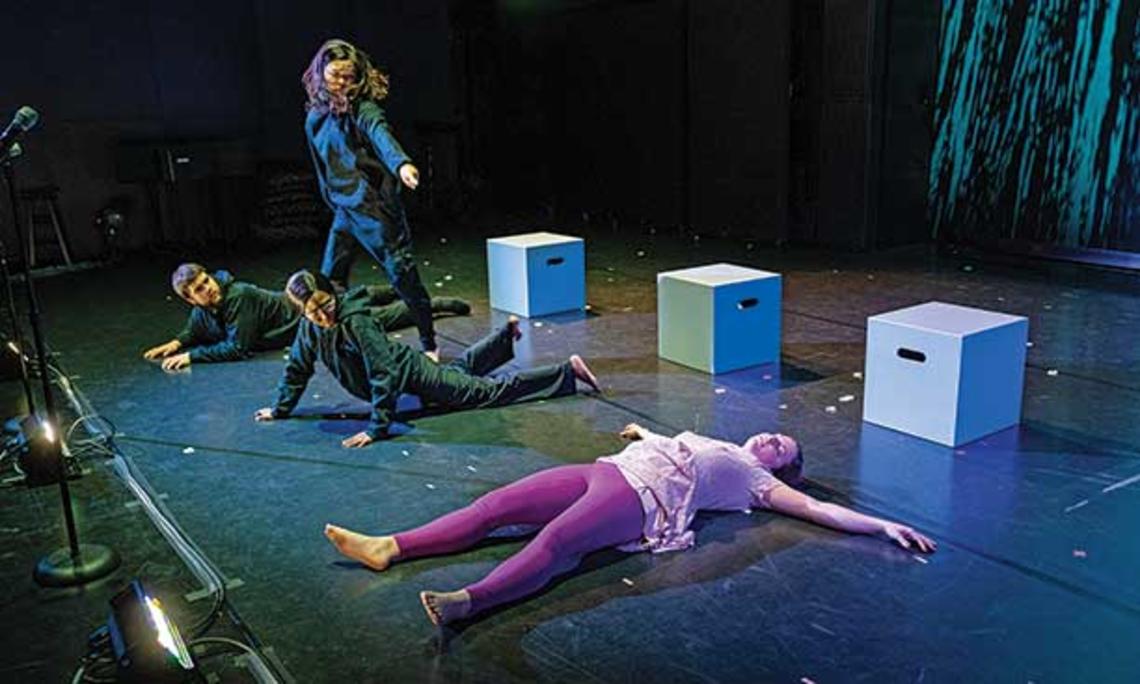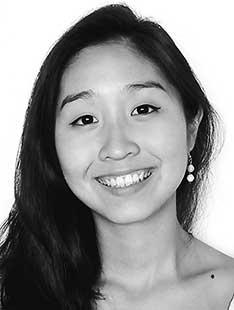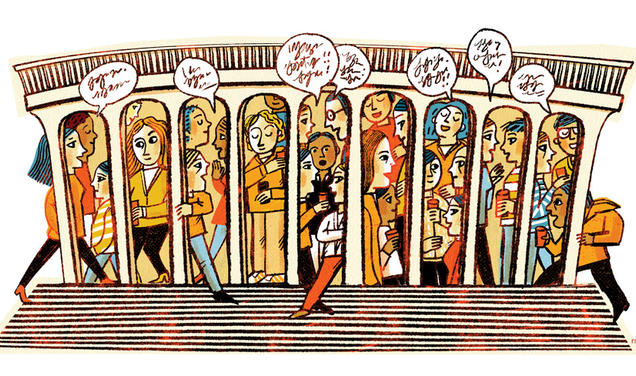
Three seniors who created a stage production that explores the black female experience at Princeton said they hope it encouraged students to take a more critical view of their time at the University.
A Spectrum Unspoken: An Original Choreopoem, a collaborative thesis written by Feyisola Soetan, directed by Janelle Spence, and choreographed by Jessica Bailey, was performed five times at the Lewis Center’s Wallace Theater last month. (A choreopoem, a genre devised by African American playwright Ntozake Shange, combines poetry, song, and dance.)
“We wanted to figure out a way to combine all three of these arts forms together in a really seamless way, and I think that we accomplished it,” said Bailey, who, along with Spence, is pursuing a certificate in music theater.

Much of the dialogue was directed toward the audience and performed in the style of a spoken-word poem. Seven vignettes — accompanied by minimal props, costumes, and stage decoration — dramatized themes ranging from exclusion and privilege to trauma and identity-based prejudice.
Soetan, an anthropology major who is pursing a certificate in theater, said the three creators held several workshops with cast members “based on innocence, exclusion, social climbing, colorism, sexism,” and other issues. “The cast created this play — their stories and all their narratives [are what] is on the stage,” she said.
The narratives ranged from the personal to the institutional: One poem depicted the challenges of dating as a black woman (“Sometimes I feel too black / Like when they look at me / All they see is skin / Skin and hair and eyes”). Another examined the privileges experienced by Princeton students because of their affiliation with an “elite” institution (“Not every student has a way to simply make / six figures a year after they graduate / that’s absurd. It’s absurd. / That we have this at our fingertips”).
Some poems took aim at Princeton-specific traditions like the eating clubs, bicker, and Reunions (“Elite networks we seek — / We rush, we bicker, / and go out of our way to meet / our peers and certain alum. / It’s good old Reunions fun!”), recognizing that not all students experience these institutions in the same way (“White spaces were created / for white people — patience. / Make it out better than you came in”).
Bailey, a sociology major, recognized that some of the content could be controversial: “I think we really wanted to ride in [the] truth and not have to censor ourselves, because we censor ourselves on every other place on campus.” By including segments that were contentious, she said, they hoped the choreopoem would help students “be more critical of the Princeton traditions [they] take advantage of.”
Nathan Poland, a junior in the African American studies department, said he felt “thrilled and broken, and healed and repaired” at the opening-night performance. “As someone who’s a black man, I just know that there is no black experience at Princeton without black women. So to see their voices uplifted in this way is imperative and special.”
Spence said she hoped Choreopoem would encourage other theater students “to be unafraid of devising and pursuing something new” in their thesis projects.










0 Responses